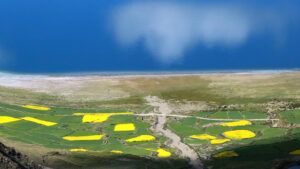Abstract/Description
When Jack Ives and Bruno Messerli, together with their friends, affectionately known as the Mountain Mafia, formulated Chapter 13 of the Rio Convention at the first Rio Conference in 1992 and subsequently pushed it through politically, they were following in the tradition of many predecessor montologists. Alexander von Humboldt was already aware of the importance of our science for politics, was in contact with Simon Bolívar and Thomas Jefferson, and spoke out resolutely and with good scientific results against ecological, economic and political grievances. He also stood up for the disenfranchised and persecuted with no less determination. In this article, I will show the influence that montologists before and after Humboldt had on the exploration and political treatment of mountains and, for reasons of time, I will limit myself to the mountain range that I know best next to the Alps, namely the Andes. Let me first look back at the time before Humboldt, then consider his contemporaries and finally examine more recent developments up to around 1960.


